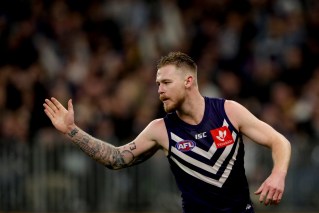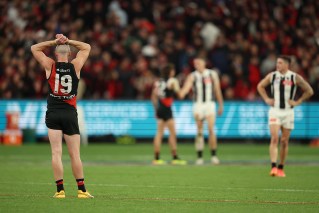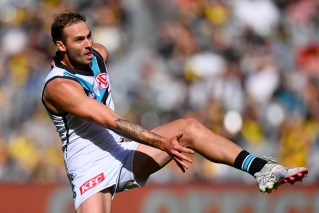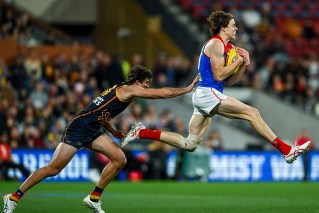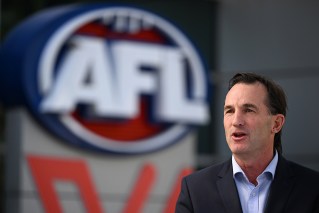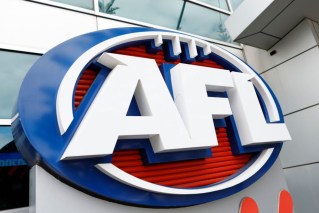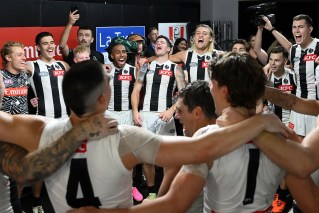AFL’s 1993 concussion report central to players’ class action
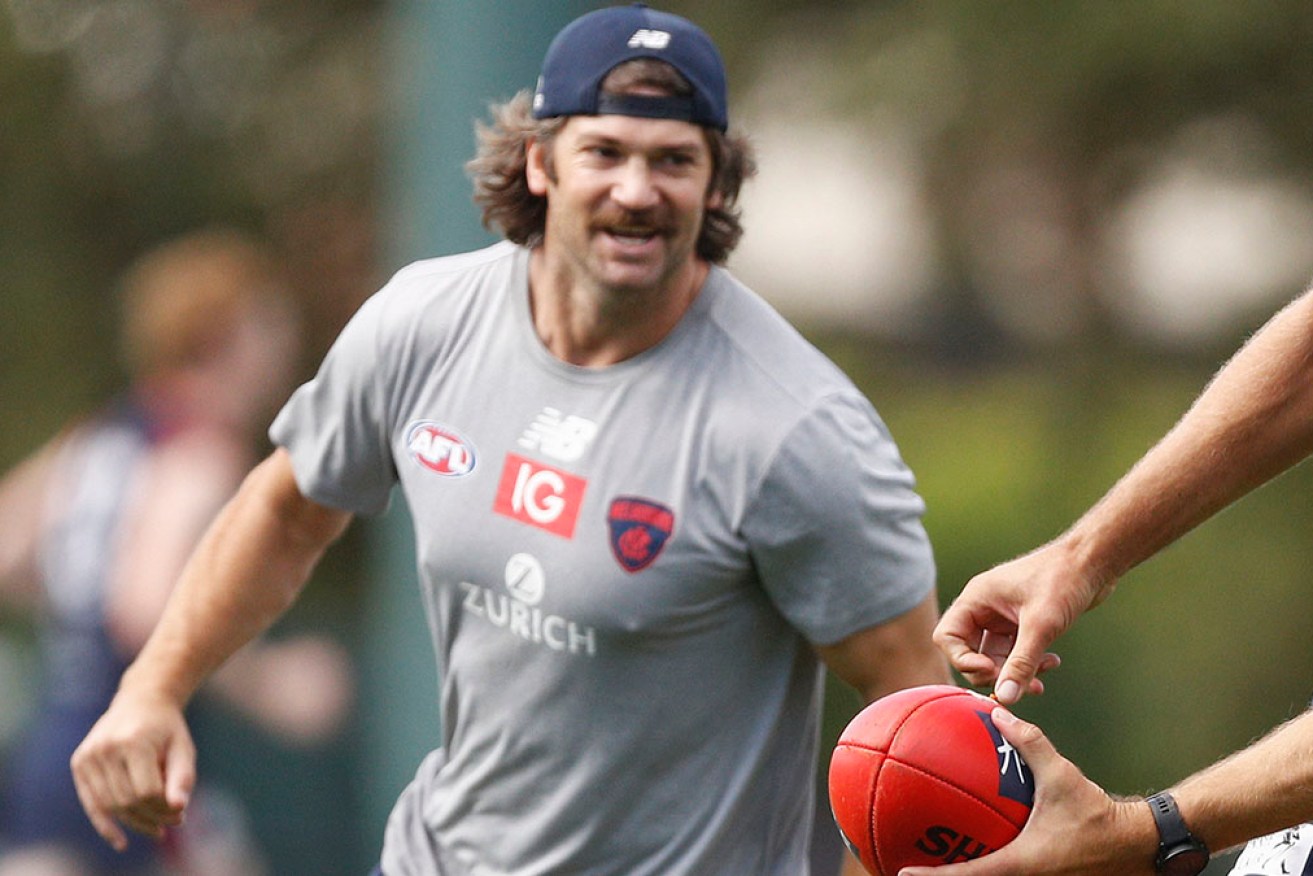
Max Rooke's case relies on an AFL medical officer's report dated November 26, 1993. Photo: AAP
An AFL report on concussion from 30 years ago is being used in a major class action against the code on behalf of dozens of players.
The case of lead plaintiff and former Geelong star Max Rooke relies on an AFL medical officer’s report dated November 26, 1993, according to a statement of claim filed in Victoria’s Supreme Court on Wednesday.
The document alleges the AFL medical officer’s report, prepared for the National Health and Medical Research Council, shows it knew of risks of harm related to concussion management.
It claims the report boils down to players may only return to training after concussion symptoms are resolved, sessions must be non-contact with a gradual return to full training only if they no longer have symptoms and players must be closely observed for subtle changes before playing in matches.
Rooke’s claim details significant head knocks or symptoms consistent with concussion from 2002 to 2009 during the home and away seasons, finals and VFL matches.
The document alleges on several occasions during his AFL career he continued playing or training while he had concussion symptoms, had not yet fully recovered and was not given a mandatory rest period.
His injuries are listed as an acquired brain injury and psychiatric injury, which severely limit his employment capacity.
More than 70 former players are part of the class action being run by Margalit Injury Lawyers while others connected to Griffins Lawyers are expected to join.
The lawsuit has now been broadened to the families of footballers who have died.
“The claim alleges that the AFL was aware of the substantial medical and scientific evidence regarding the possible long-term effects of concussion,” Margalit principal Michel Margalit said.
“Instead of taking steps early to protect players, the AFL dragged their feet which has left players with lifelong conditions that they will never recover from.”
Separately, WorkCover claims have also been filed on behalf of about 30 players active between May 1978 and December 1997 who suffered physical and psychological injuries.
AFL spokesman Jay Allen said the organisation took concussion and the protection of brain health very seriously, with guidelines updated each year.
He said the AFL had made more than 30 changes to on-field rules and tribunal guidelines over the past two decades and all protocols were developed on the advice of qualified experts.
“The AFL has a team of people specifically working on brain health initiatives and we continue to strengthen protocols and the education of clubs and players as to why this issue is taken so seriously,” Mr Allen said.
The league has been working towards an expanded injury and hardship fund for financial and other assistance for former players on top of existing help, he said.
Concussion has become a major concern for sporting organisations in recent years, with other major codes including the NRL rolling out updated protocols.
In addition to the class action, several former AFL players have launched individual lawsuits in Victorian courts and some deceased players have been diagnosed with severe chronic traumatic encephalopathy, which is related to concussion.
The AFL has until February 9 to formally respond to the class action.
-AAP

